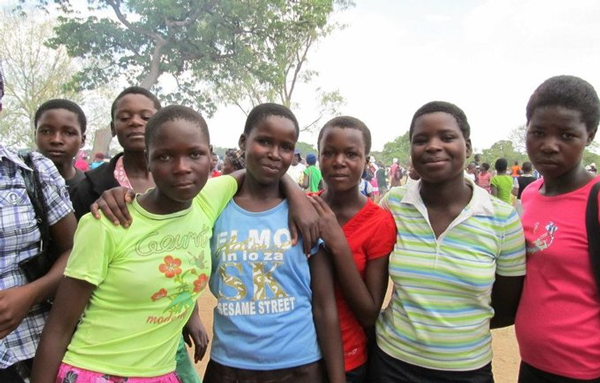
social commentary with Maoses Mugugunyeki
Communities in Zimbabwe, particularly in rural areas, are riddled with traditional practices, rituals and attitudes, which perpetuate the discrimination and infringement of adolescents’ fundamental civil liberties.
Such practices constitute a major barrier to adolescents’ sexual and reproductive health and rights, which prompted a number of organisations, including the Southern African HIV and Aids Information Dissemination Service (SAfAIDS), embark on a comprehensive adolescent programme in the country.
The one-year programme, known as Her Choice, is being rolled out in three districts in the country in Hwange (Matabeleland North), Rushinga (Mashonaland Central) and Mberengwa (Midlands) with the aim of helping adolescents manage their reproductive lives.
The programme also aims to empower adolescents and youths to have access to sexual reproductive health services, including access to contraception.
According to the World Health Organisation (WHO), 16 million adolescents aged 15-19 give birth each year, mostly in low and middle-income countries.
Approximately one in 10 adolescent girls give birth every year between the ages 15-19 years, according to the Zimbabwe Demographic Health Survey (2015). Pregnancy and childbirth-related complications are the number one killers of girls aged 15 to 19.
SAfAIDS programmes officer Ashley Ngwenya conceded that some traditional practices are indeed hindering adolescents from accessing sexual and reproductive health services, but she said one of the components of Her Choice was to transform communities to be more sensitive to adolescents’ sexual and reproductive health rights.
- Chamisa under fire over US$120K donation
- Mavhunga puts DeMbare into Chibuku quarterfinals
- Pension funds bet on Cabora Bassa oilfields
- Councils defy govt fire tender directive
Keep Reading
“We are going to engage all key stakeholders from the judiciary, parliamentarians, law enforcements agents as well as traditional and community leaders through sensitisation workshops so that they understand where are we are coming from and where we are going,” she said.
Ngwenya said they had started engaging traditional authority structures in the districts where they are rolling out the programme.
Twenty-year-old Merita Tavy, a peer educator under the Her Choice programme in Mberengwa, said one of the challenges faced by adolescents in her area was dearth of sexual and reproductive health rights information.
“Most of my peers in Mberengwa lack information and many have ruined their lives because they don’t know their rights,” Tavy said.
Hailing from Vambare near Musume Mission in Mberengwa, Tavy said most girls in the area were being forced into early marriages.
“One of the challenges that we face in Mberengwa is that most of the girls are marrying at young ages. While some are forced into marriages, others got into such unions just because they lack information,” she said.
“As a peer educator, I hope to avail sexual and reproductive health information to my peers and the elderly, including traditional and community leaders, through workshops and gatherings.”
Tavy said it was a mammoth task for adolescents in Mberengwa to access contraception because of a c shortage of health centres.
Tariro Chikuni, a peer educator under the same programme in Rushinga, said the establishing of a youth centre in Rushinga is helping youth access sexual and reproductive health information.
“We have a well-equipped youth centre in Rushinga where youths are coming in their numbers, which is commendable. We are going around disseminating information and community leaders are also being involved in some of the programmes that we are doing,” Chikuni said.
Ngwenya said removing restrictions in accessing contraceptives was the way to go in curbing teenage pregnancy and sexually transmitted infections among adolescents.
However, she believes accessing contraception would allow adolescents access contraceptives from public health institutions.
According to the 2015 Zimbabwe Demographic and Health Survey (2015 ZDHS), it is estimated that in Zimbabwe about 51% of young people (15-19 years) access their contraceptives from private pharmacies.
Her Choice also incorporates boys in its programming.











